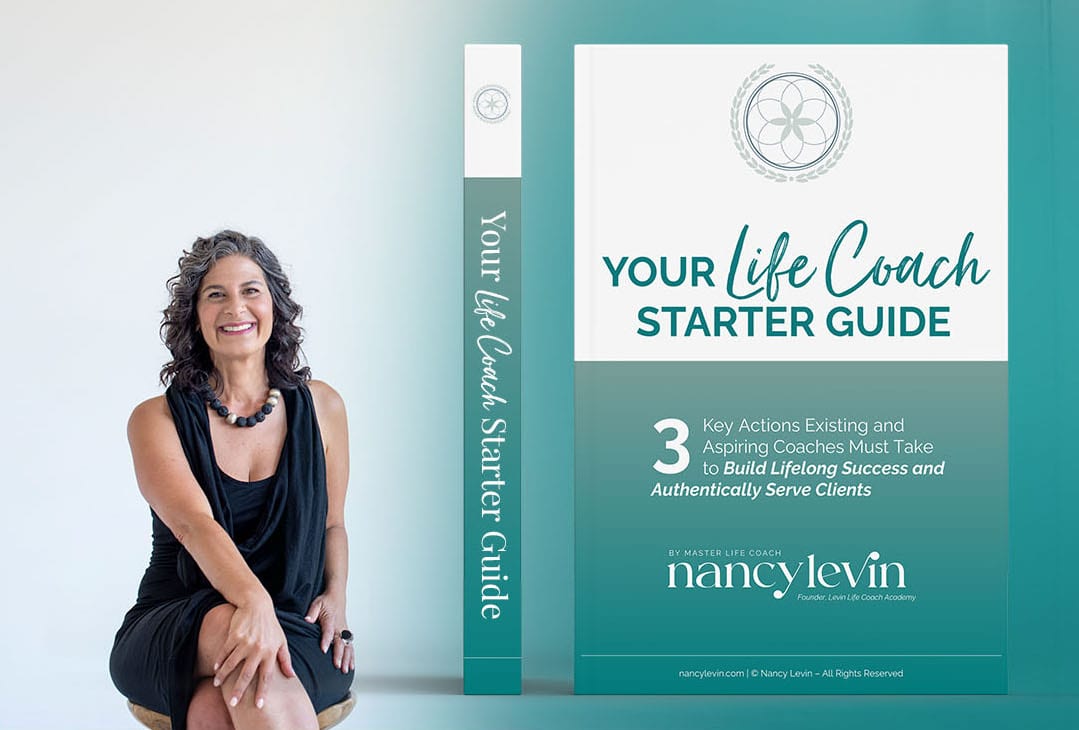I recently celebrated another birthday and while I am normally not one to focus on big celebrations, I’m also not one to get caught up in the whole negative conversation around aging.
For me, aging has been a celebration of the wisdom and understanding I’ve gained and the relationship I’ve developed with myself. But this year felt a little different – maybe even a little off. Suddenly, I started to see myself as “old” and started to worry about how I might be aging – and the impact it could have on how I live my life.
And while I was able to shake it off and recognize that fear was driving my sudden negativity, it reminded me how easy it is to fall trap to our negative thoughts and allow them to define who we are.
Did you know that we have around 60,000-80,000 thoughts per day?
That’s about 2500-3,330 thoughts per hour.
And while researchers believe that most of our thoughts recycle from day to day – an astonishing 80 percent of those thoughts are negative!
So, not only are we creatures of habit, we are incredibly negative creatures of habit.
Maybe you’re reading this blog thinking, “Not me. Sure I can get dissatisfied from time-to-time, but there is no way I have that many negative thoughts creeping around my mind.”
Well, maybe – and maybe not. The truth is that most of the negative thoughts we have are actually operating at the level of our subconscious – which means we’re not even aware that we’re having some very horrible conversations inside our head.
Some of these thoughts are so automatic, we might not even be aware that the thoughts that do float to the surface might be holding us back. Thoughts like “I can’t do this” or “I’m so stuck” actually disguise themselves as “truths”, when in reality it’s just our subconscious negativity hijacking us.
And while we might be aware of some of our negative thoughts – like the one I had about aging recently – we’re also unaware of others that end up draining our self-worth and our self-esteem!
The danger occurs when we quietly acquiesce to our thoughts and begin to define ourselves by each and every negative statement.
Have you ever noticed yourself saying that you’re “bad” at something – like money? Or perhaps you have a belief about how much you should expect out of life?
Your negative thoughts, beliefs and patterns have a way of working their way throughout your life until one day you find yourself defined by what you think you are!
So, what can you do?
Well, you can begin by becoming aware of all the negative thoughts that course through your brain each and every day (remember, studies show that we unoriginally repeat our thoughts day after day). Simply setting an intention to observe your thoughts will help you gain greater clarity over the conversations you might be having.
When we become aware of our beliefs, or take the plunge to act in spite of them, we have the opportunity to prove them wrong. I’m sure if you review your past, you’ll think of things you once thought were facts that have since been proven to be nothing more than misguided beliefs.
Some of our self-judgments too are based on misinterpreting what someone else says, or presuming we know what others are thinking about us. We conclude that they’re judging us, and that judgment becomes a belief in our own psyche. But the truth is that the other person may not be judging us at all. The comment or action might have nothing to do with us, but we make it mean something about our worth. Think about how often we assume someone else is judging us. We do it a lot as adults. But when we were kids, we did it times a hundred.
At a young age, we only know who we are in reference to other people.
We form our self-identity based on what others—parents, siblings, relatives, teachers, friends at school—reflect back to us.
We assume the grown-ups around us know what they’re talking about. If an adult says there is something wrong with us, it must be true. Heck, even if some other child we dislike, who sits next to us in class, says, “Something’s wrong with you,” we usually believe it’s the truth.
Only it isn’t.
But as we grow up, these voices of our parents, as well as others in our lives, become our own. We repeat in our heads the same words we heard. Like our beliefs about money or anything else, we then relate to those words as fact.
And they become part of our identity.
How can you tell if the voice you hear in your head is the negative “voice of unworthiness”?
It comes out in distorted or exaggerated language. Here are some examples of “negative-speak” that keeps us stuck at the mercy of limiting beliefs, excuses, and underlying commitments:
- Absolutes. Whenever we speak in black-and-white, all-or-nothing terms, we can be sure that it’s negative talk. The words “never” and “always” are big giveaways. “I can’t do anything right.” “I’ll never make it on my own.”
- Jumping to Conclusions. This is when we assume we know what others are thinking, and we assume it’s something bad . . . about us. Think again: How many times have you assumed that you didn’t receive a reply to an e-mail because the person was mad at you . . . only to find out that they never got it? Or they wrote back, and you didn’t get the reply? Or they simply didn’t think it was necessary to write back? Or they forgot? Or they were sick?
- Defeatist Thinking. We decide we already know what’s going to happen, sometimes based on the past.
So today I want to you to think about an identity that isn’t really yours. Start listening to your own beautiful and strong voice and reject the voice of unworthiness. Your value isn’t linked to success or failure. It has no relationship to what you do. It’s about who you are. So, who do you want to be?
Let’s keep this conversation going in my Free Facebook Group, Transform Together. Join me over there and let me know, who do you want to be?
xo
Nancy
P.S. Are you ready to learn more about how your self-worth might be impacting your life, and your net worth? Take this quiz to find out!








